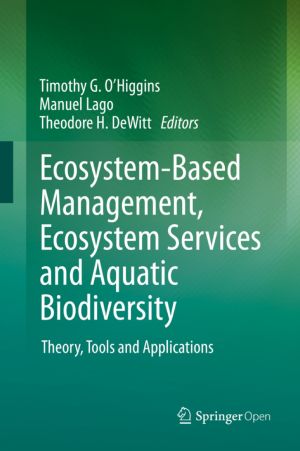
Aquatic ecosystems are rich in biodiversity and home to a diverse array of species and habitats, providing a wide variety of benefits to human beings. Many of these valuable ecosystems are at risk of being irreversibly damaged by human activities and pressures, including pollution, contamination, invasive species, overfishing and climate change. Su...

Reviews of Environmental Contamination and Toxicology attempts to provide concise, critical reviews of timely advances, philosophy and significant areas of accomplished or needed endeavor in the total field of xenobiotics, in any segment of the environment, as well as toxicological implications....
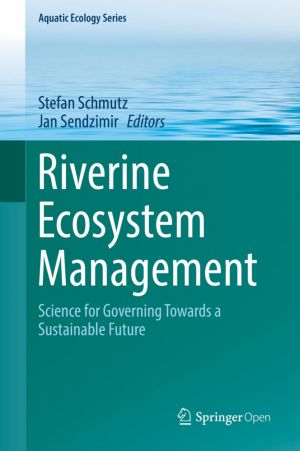
This book surveys the frontier of scientific river research and provides examples to guide management towards a sustainable future of riverine ecosystems. Principal structures and functions of the biogeosphere of rivers are explained; key threats are identified, and effective solutions for restoration and mitigation are provided. Rivers are among ...

This open book describes the serious threat of invasive species to native ecosystems. Invasive species have caused and will continue to cause enormous ecological and economic damage with ever increasing world trade. This multi-disciplinary book, written by over 100 national experts, presents the latest research on a wide range of natural science an...

It overviews the poisoning which occurred in the 1950s and 1960s among the residents in Minamata who ate seafood contaminated with methylmercury discharged from the chemical factory, Chisso Corporation. It describes the history, symptoms pathogenesis and research on the causal agent, and discusses the responses of Chisso and the national and local ...
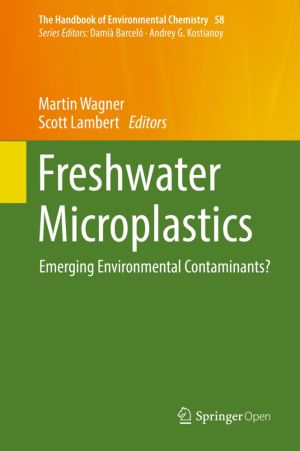
This volume focuses on microscopic plastic debris, also referred to as microplastics, which have been detected in aquatic environments around the globe and have accordingly raised serious concerns. The book explores whether microplastics represent emerging contaminants in freshwater systems, an area that remains underrepresented to date. Given th...

This open book reviews the water-agro-food and socio-eco-system of the Seine River basin (76,000 km2), and offers a historical perspective on the river's long-term contamination. The Seine basin is inhabited by circa 17 million people and is impacted by intensive agricultural practices and industrial activities. These pressures have gradually ...
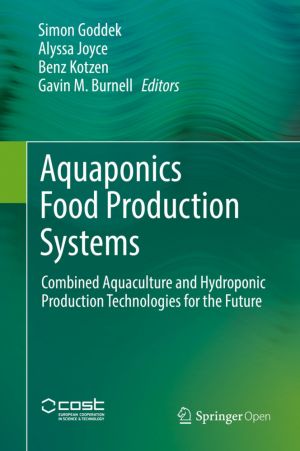
This book, written by world experts in aquaponics and related technologies, provides the authoritative and comprehensive overview of the key aquaculture and hydroponic and other integrated systems, socio-economic and environmental aspects. Aquaponic systems, which combine aquaculture and vegetable food production offer alternative technology soluti...

This book presents the proceedings volume of the YOUMARES 8 conference, which took place in Kiel, Germany, in September 2017, supported by the German Association for Marine Sciences (DGM). The YOUMARES conference series is entirely bottom-up organized by and for YOUng MARine RESearchers. Qualified early career scientists moderated the scientific se...
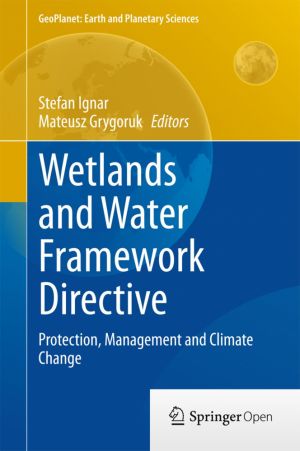
This book compares the lessons learned from a wetland-perspective approach to the changing climate and the requirements of the Water Framework Directive (WFD) with regard to environmental conservation. Examples from Germany and Poland are discussed due to the efficiency of their respective implementations of water conservation policies. Although th...

This book provides comprehensive research findings related to the environmental monitoring of radiation, levels of radioactive nuclides in various environments, and dose estimation in residents after the Fukushima nuclear power plant accident caused severe environmental contamination with radioactive nuclides. At the beginning of the book, a techni...
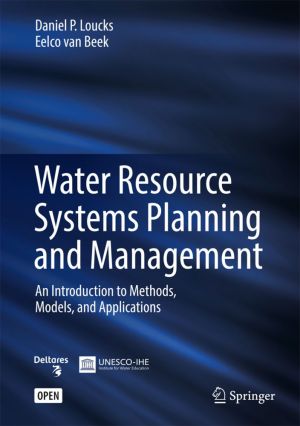
This revised, updated textbook presents a systems approach to the planning, management, and operation of water resources infrastructure in the environment. Previously published in 2005 by UNESCO and Deltares (Delft Hydraulics at the time), this new edition, written again with contributions from Jery R. Stedinger, Jozef P. M. Dijkman, and Monique T...

Phylogenetic diversity is now a key concept for biodiversity conservation due to its link to option value, evolutionary potential and to the possibility of guiding conservation across scales. Present facilities for obtaining molecular sequences and metagenomes are powering this research field, rendering available detailed information of phylogeneti...

This book presents the results of the Interdisciplinary Research Group "Society – Water – Technology" of the Berlin-Brandenburg Academy of Sciences and Humanities. It describes interdisciplinary evaluation criteria for major water engineering projects (MWEPs) and portrays an application to the Lower Jordan Valley (Middle East) and th...

This open access volume presents a comprehensive account of all aspects of biological invasions in South Africa, where research has been conducted over more than three decades, and where bold initiatives have been implemented in attempts to control invasions and to reduce their ecological, economic and social effects. It covers a broad range of the...

This title meets a great demand for training in spatial analysis tools accessible to a wide audience. Landscape ecology continues to grow as an exciting discipline with much to offer for solving pressing and emerging problems in environmental science. Much of the strength of landscape ecology lies in its ability to address challenges over large are...

This open volume aims to methodologically improve our understanding of biodiversity by linking disciplines that incorporate remote sensing, and uniting data and perspectives in the fields of biology, landscape ecology, and geography. The book provides a framework for how biodiversity can be detected and evaluated - focusing particularly on plants -...
